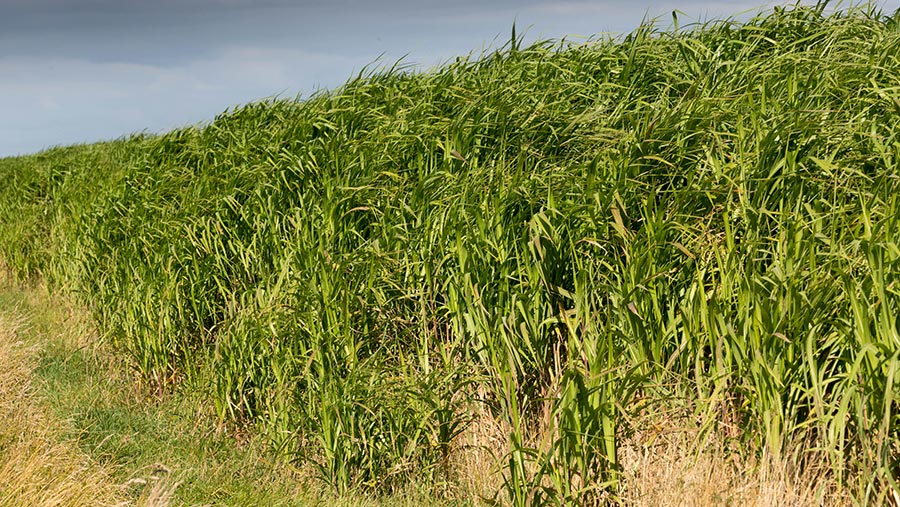£4m fund to scale up biomass production in UK
 Miscanthus being grown for biomass © Tim Scrivener
Miscanthus being grown for biomass © Tim Scrivener The government has made £4m available to kick-start growth in biomass production by identifying commercially viable innovations which will make bioenergy crops more attractive to farmers.
Ministers are focused on making a “transformative change” in biomass production as part of the government’s strategy to drive down carbon emissions.
The independent Committee on Climate Change’s vision is for the area of energy crops in the UK to rise from around 10,000ha in 2020 to 720,000ha in 2050.
See also: Miscanthus – can it tackle climate change and deliver a profit
The Biomass Feedstock Innovations Programme, announced as part of the Budget, will support organisations that are seeking to improve productivity, through advancements in breeding, planting, cultivating and harvesting.
Areas of interest to drive the sector forward include focusing on cultivars which yield well but with minimal fertiliser inputs, or ones that are more robust to extend the geographical area biomass crops can be grown in.
Alternatively, there may be potential to reduce the length of a biomass rotation by using new agronomy or precision-farming techniques.
Two phases
The programme will provide funding for projects over the next four years, split between two phases.
The first phase will offer contracts of up to £200,000 to develop project implementation plans which must be completed by 31 January 2022.
Phase two will offer contracts to help demonstrate the innovation and develop it for commercialisation.
Proposed projects must focus on second-generation energy crops (non-food, lignocellulosic crops) and conventional (long-rotation) and short-rotation forestry.
Applications involving traditional food and fodder crops such as maize, and waste feedstocks such as animal manures, will not be accepted.
Biomass benefits
Biomass includes crops like miscanthus and short-rotation coppice, along with waste products from the agriculture and forestry industries such as straw, livestock manures and tree residues.
Biomass crops can help to mitigate climate change in one of two ways.
As the crop grows, it removes carbon dioxide from the atmosphere and locks it up in the soil and vegetation of the plant.
The end product can also be used to displace fossil fuels such as oil, coal and natural gas and in some circumstances can be used as an alternative to high-carbon materials such as steel and cement.
